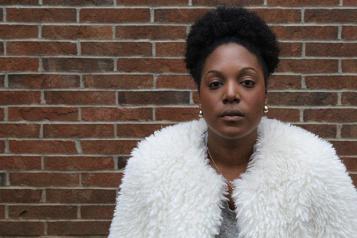Testing your knowledge for World Menopause Day

It can sometimes happen earlier naturally, or for reasons such as surgery to remove the ovaries or uterus, cancer treatments or a genetic condition.
Perimenopause is when you have symptoms before your periods have stopped. You reach menopause when you have not had a period for 12 months.
Common symptoms of menopause and perimenopause
Menopause and perimenopause symptoms can have a big impact on your daily life, including your relationships, social life and work.
It can feel different for everyone. You may have a number of symptoms or none.
Symptoms include:
- Changes to your periods
- The first sign of the perimenopause is usually, but not always, a change in the normal pattern of your periods, for example they become irregular.
- Mental health symptoms:
- Common mental health symptoms of menopause and perimenopause include:
- Changes to your mood, like low mood, anxiety, mood swings and low self esteem
- Problems with memory or concentration (brain fog)
- Common mental health symptoms of menopause and perimenopause include:
- Physical symptoms:
- Hot flushes
- Difficulty sleeping
- Palpitations
- Headaches and migraines
- Muscle aches and joint pains
- Changed body shape and weight gain
- Skin changes including dry and itchy skin
- Reduced sex drive
- Vaginal dryness and pain, itching or discomfort during sex
- Recurrent UTI’s
Things you can do:
Eating well, exercising and looking after your mental wellbeing can help symptoms during perimenopause and menopause.
DO:
- Get plenty of rest
- Eat a healthy diet
- Have calcium rich food like milk and yoghurt to keep your bones healthy
- Exercise regularly
- Do relaxing things like yoga, tai chi or meditation
- Talk to a doctor before taking herbal supplements or complementary medicines
DON'T:
- Smoke
- drink more than the recommended alcohol limit
What are the treatment options for menopause?
The main treatment for menopause and perimenopause symptoms is hormone replacement therapy (HRT), which replaces the hormones that are at low levels. There are, however, other treatments available if you cannot, or choose not to, have HRT:
- Testosterone gel for reduced sex drive
- If HRT does not help restore your sex drive, you might be offered a testosterone gel or cream. It can help improve sex drive, mood and energy levels.
- Oestrogen for vaginal dryness and discomfort
- A GP can prescribe oestrogen treatments that you can insert into your vagina, as a tablet, cream or ring. This can also improve any urinary symptoms caused by menopause, like discomfort when you pee.
- A blood pressure medicine called Clonidine, or an epilepsy medicine called Gabapentin:
- These medicines can help with hot flushes and night sweats
- Cognitive behavioural therapy (CBT):
- A talking therapy that can help with low mood and anxiety
- Some physical symptoms like hot flushes and joint pain
Help and support:
There are several charities offering information and support, including:
- Women's Health Concern
- Menopause Matters
- Daisy Network for premature menopause
- Menopause Café
- Queermenopause for people who identify as LGBT+
Did you get the treatment and support that you needed?
Your story could help someone else


